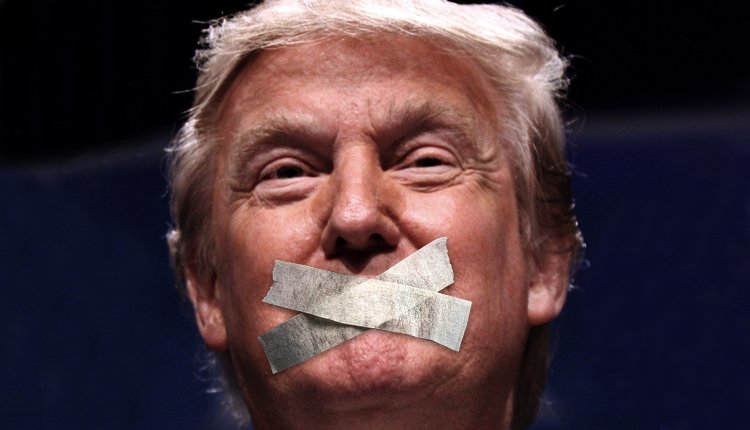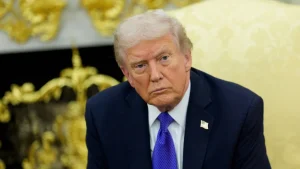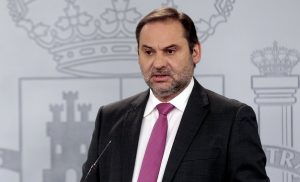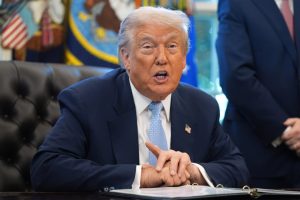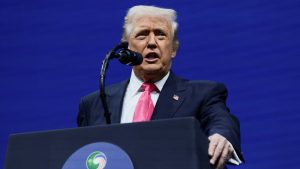Judge to Decide Whether Trump’s Hush Money Conviction Can Stand: A Landmark Test of Presidential Immunity
A New York judge is expected to make a pivotal decision this week regarding Donald Trump's conviction over hush money payments made to adult film actress Stormy Daniels in 2016. At the heart of this decision is the issue of presidential immunity and whether it can shield former presidents from legal repercussions for actions taken during their time in office. The ruling could set a landmark precedent, defining the boundaries of presidential immunity and accountability. Here’s a comprehensive look at what’s at stake, the arguments in play, and how this decision could reverberate far beyond the courtroom.
Background of the Hush Money Case
The case dates back to 2016, when a $130,000 payment was made to Daniels to prevent her from disclosing an alleged affair with Trump. Trump’s former attorney, Michael Cohen, facilitated the payment and later pleaded guilty to charges connected to campaign finance violations. Cohen claimed the payment was intended to protect Trump’s campaign, making it a political transaction.
Fast forward to 2024, and Trump was convicted on 34 felony counts of falsifying business records related to the payment. The crux of these charges was that Trump and his associates manipulated business records to hide the payment's true purpose, concealing it under seemingly legitimate expenses. The court found this method amounted to falsifying records and attempting to evade campaign finance law. But the conviction is now under review due to a recent Supreme Court ruling on presidential immunity, which may potentially alter its course.
The Supreme Court Ruling: Presidential Immunity Examined
In July 2024, the Supreme Court ruled that former presidents are immune from prosecution for actions taken in their official capacity. Trump’s legal team argues that his conviction falls under this immunity since he was an acting president at the time of the payment. Their position rests on the notion that maintaining his public image, particularly during a tightly contested campaign, was intrinsically linked to his presidential role. Thus, they contend the payment falls within the scope of actions taken in his official capacity.
Legal experts are divided on whether the ruling should apply in this case. On one side, some argue that this immunity, when broadly interpreted, may shield Trump from legal repercussions tied to his time in office. On the other, many experts believe presidential immunity should only cover specific official duties, not actions intended to advance a political campaign or protect personal interests.
Key Legal Arguments: Personal Versus Official Actions
In this high-stakes legal arena, Trump's attorneys argue that shielding a public figure’s reputation from potentially damaging revelations is a core political act, closely tied to his presidential duties. They assert that protecting Trump’s public image was essential to his ongoing presidency, meaning the hush money payment was tied to his official actions.
Related: Bitcoin Surpasses $80,000 Amid Trump's Victory and Pro-Crypto Agenda
Prosecutors, however, maintain that the payment was a personal matter, driven by individual motivations rather than presidential duty. They argue that arranging hush money deals is far removed from the typical responsibilities of the executive office. Furthermore, prosecutors emphasize that falsifying business records to mask the payment’s purpose constituted a violation of the law, unrelated to Trump’s presidential role. Their position is that this incident was a case of personal reputation management rather than a matter of state or national interest.
The presiding judge is tasked with assessing these arguments and determining whether the hush money case qualifies as an act of official conduct deserving immunity or as a private action that falls outside the Supreme Court’s ruling.
Political and Legal Implications of the Judge’s Decision
Should the judge rule in Trump’s favor, this decision could reshape our understanding of presidential immunity, extending its boundaries to cover actions with even indirect political implications. This outcome might strengthen former presidents' immunity, setting a precedent that shields them from specific legal repercussions long after leaving office. Such a precedent could influence the interpretation of immunity laws for future officeholders, potentially making it harder to prosecute former presidents.
For Trump personally, a favorable ruling would bolster his legal position as he contends with several other ongoing investigations, which include various civil and criminal cases. Moreover, an overturned conviction could provide a political boost as he campaigns for re-election, reinforcing his narrative that he is unfairly targeted by a “politically motivated” justice system.
Conversely, if the conviction stands, Trump may face more serious consequences. The conviction adds to a growing list of legal challenges, potentially complicating his re-election bid. A decision against Trump would imply that personal actions taken during a presidency are not exempt from scrutiny, even when they overlap with political campaigns. This outcome would reaffirm the importance of legal accountability for presidents, potentially narrowing the scope of immunity and reinforcing the notion that personal and official actions must be distinguishable in legal terms.
Potential Long-Term Effects on Presidential Immunity and Accountability
The Trump case brings a new layer of complexity to debates about the limits of presidential power and accountability. Historically, presidential immunity was established to protect the executive branch's independence and to prevent politically motivated lawsuits from interfering with governance. However, the boundaries of immunity have rarely been tested in cases involving alleged personal misconduct. This case could broaden or narrow those boundaries in ways that shape future legal and political landscapes.
If immunity is extended to include actions indirectly tied to political standing, future presidents might feel emboldened to stretch the limits of acceptable conduct. On the other hand, a ruling that upholds Trump’s conviction would act as a counterbalance, emphasizing that legal standards apply to presidents even after their term ends, especially concerning private or campaign-related actions.
Related: Trump Files $10 Billion Lawsuit Against CBS Over "60 Minutes" Interview
This case’s potential to redefine the scope of immunity underscores the importance of distinguishing official duties from personal matters. Legal scholars suggest that a broad interpretation of immunity could weaken checks and balances, blurring lines between private interests and public office. Others believe this outcome could discourage presidents from taking any action that could later be construed as personal, placing a heavier burden on the executive office.
The Judge’s Decision: A Pivotal Moment in Trump’s Legal Saga
As the legal community and public wait for the judge's decision, the case has already underscored the need for clearer guidelines on presidential immunity. The decision could either offer Trump a pathway to overturn his conviction or reinforce accountability standards for former presidents, ensuring that private actions remain outside the shield of immunity.
Trump’s legal team faces an uphill battle, as they must prove that the hush money payment was essential to Trump’s role as president, not merely a personal maneuver to protect his image. For prosecutors, the challenge lies in convincing the judge that the falsification of records is sufficiently removed from official presidential actions to warrant conviction. Whichever way the ruling goes, it is likely to leave a lasting imprint on the evolving legal landscape surrounding presidential immunity.
This case serves as a reminder of the delicate balance between presidential privilege and accountability, a balance that becomes increasingly complex in cases that straddle the line between public duty and private interest. The judge’s ruling may well reshape how immunity is applied in future cases, influencing not only Trump’s legal trajectory but also the responsibilities and limitations that come with the highest office in the land.
As the decision looms, the case brings to light essential questions about accountability and immunity in U.S. politics. In the coming weeks, the legal landscape for former presidents may face a pivotal shift, one with implications for decades to come.



